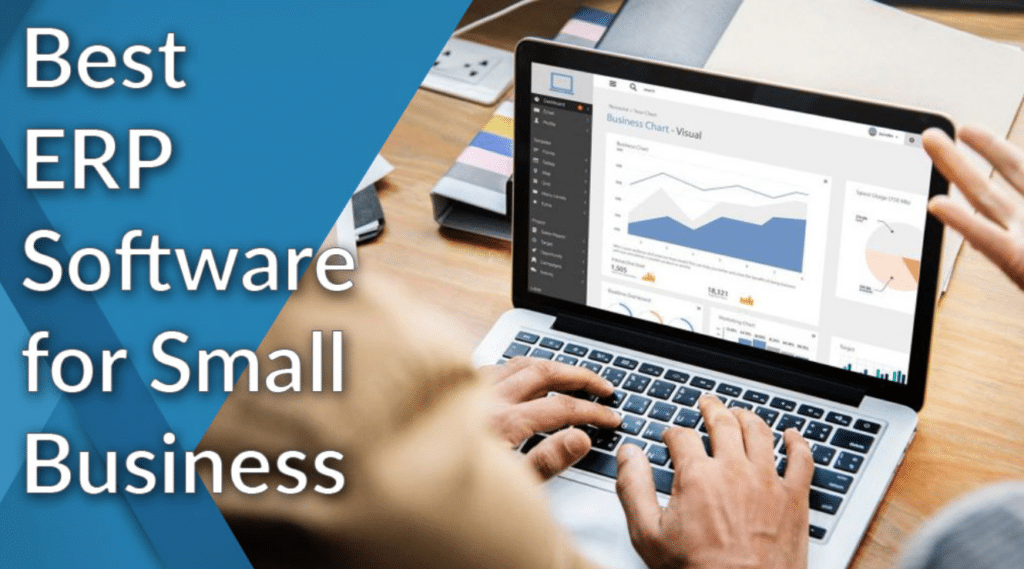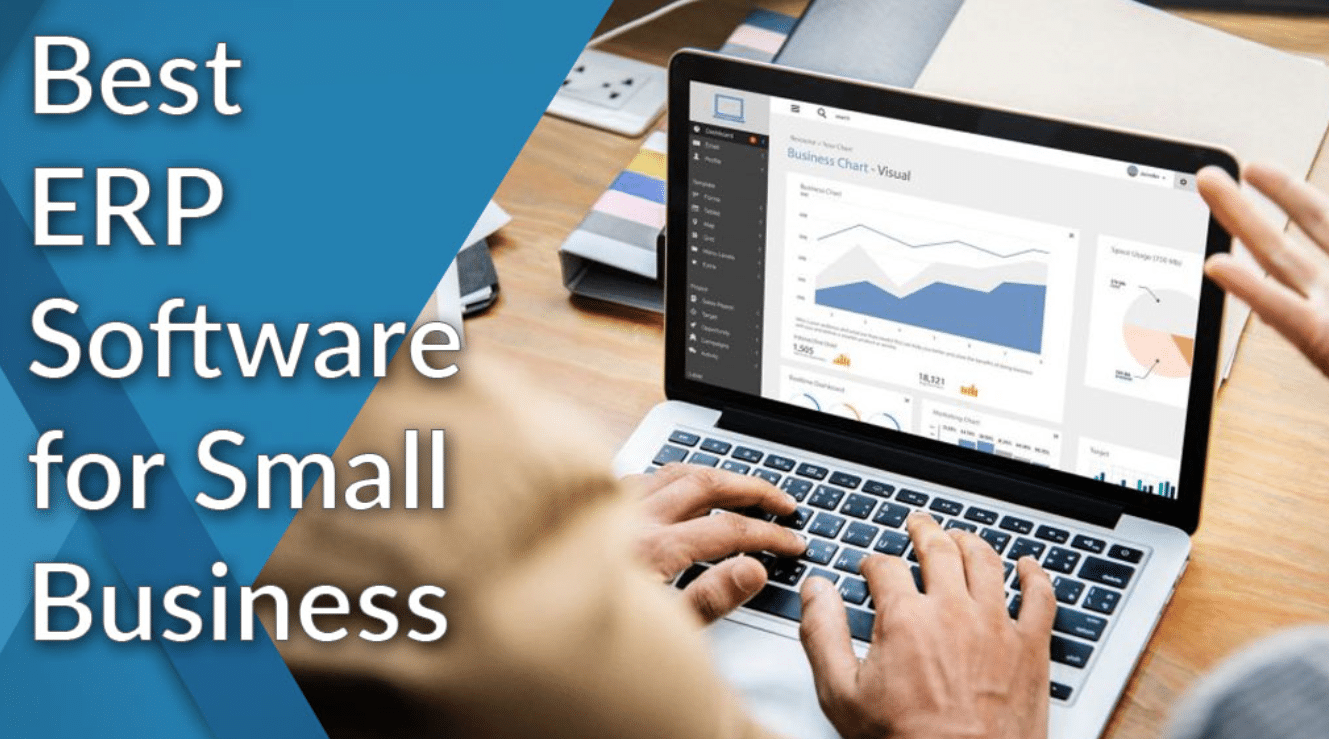ERP for Small Business: A Comprehensive Guide to Streamlining Operations – In the fast-paced and competitive world of small businesses, efficiency and organization are key to survival and growth. One of the most significant challenges that small business owners face is managing their operations in a way that maximizes productivity while minimizing errors. This is where Enterprise Resource Planning (ERP) software can make a transformative impact. ERP systems for small businesses help integrate and automate essential business processes, making it easier for owners to manage inventory, human resources, finances, customer relationships, and more.
In this article, we’ll explore how ERP for small businesses works, the benefits it offers, and how it can be a game-changer for small business owners who aim to scale efficiently and effectively.

What is ERP for Small Business?
At its core, Enterprise Resource Planning (ERP) is a suite of integrated applications designed to help businesses automate and manage various functions like accounting, procurement, inventory management, human resources, and customer relationship management (CRM). Traditionally, ERP systems were used by large enterprises due to the high cost of implementation and maintenance. However, with technological advancements, many ERP solutions have been tailored to meet the specific needs of small businesses, providing a cost-effective solution without compromising on functionality.
Small businesses can leverage ERP systems to consolidate different aspects of their operations into one unified platform, enhancing efficiency and decision-making. Instead of using multiple separate software tools, an ERP system integrates all business functions into one system, streamlining operations and providing real-time data that can drive more intelligent business decisions.
Key Features of ERP for Small Business
ERP systems for small businesses typically include a wide range of features. These features can be customized depending on the specific needs of the business, but some of the key components are:
- Financial Management ERP systems simplify financial management by automating key functions such as billing, invoicing, accounts payable and receivable, and financial reporting. With a single source of financial data, small business owners can reduce human errors and gain better visibility into their financial health. This leads to better budgeting, forecasting, and cost management.
- Inventory Management Efficient inventory management is critical for small businesses, especially those involved in retail or manufacturing. ERP systems provide real-time tracking of inventory levels, ensuring businesses never run out of stock or overstock. This reduces the risk of stockouts, improves order fulfillment, and cuts down on unnecessary storage costs.
- Customer Relationship Management (CRM) Maintaining strong relationships with customers is vital for the success of any business. ERP systems for small businesses include integrated CRM tools that allow businesses to track customer interactions, manage leads, and improve communication. These tools provide a centralized database for customer data, allowing businesses to personalize their marketing and sales efforts to meet the specific needs of each client.
- Human Resources and Payroll ERP systems also streamline human resources (HR) and payroll management, which can be time-consuming for small business owners. With HR modules, businesses can manage employee records, track attendance, handle payroll, and ensure compliance with labor laws. This reduces administrative overhead and ensures that employees are paid on time and accurately.
- Project Management For businesses that run projects or have clients with specific requirements, ERP systems can help manage project timelines, allocate resources, track progress, and manage costs. These tools help ensure that projects are completed on time and within budget.
- Sales and Procurement ERP software also integrates the sales and procurement functions of small businesses. It helps manage purchase orders, track supplier relationships, streamline the order-to-cash process, and ensure that inventory is replenished at the right time. This leads to better vendor management and can improve cash flow.
Why Small Businesses Should Consider ERP
- Cost Savings and Efficiency One of the most significant advantages of an ERP system for small businesses is cost savings. By automating many day-to-day tasks, businesses can save time and reduce operational costs. For example, automated financial processes minimize the risk of human error, which in turn reduces costly mistakes. Streamlined inventory management helps businesses avoid overstocking or stockouts, cutting down on wasted resources and lost sales.
- Improved Decision-Making The real-time data that ERP systems provide can significantly improve decision-making for small businesses. With accurate, up-to-date information on sales, inventory, finances, and customer interactions, small business owners can make more informed decisions, identify trends, and capitalize on opportunities faster.
- Scalability As small businesses grow, their needs evolve. ERP systems are scalable, meaning they can grow alongside the business. Many ERP solutions offer flexible modules that can be added as the business expands, allowing small businesses to scale their operations without needing to switch to a new system. This means that as the business grows, the ERP system can continue to support its changing needs.
- Enhanced Collaboration and Communication With ERP systems, all departments within a small business can access the same data, leading to better collaboration and communication across the organization. For instance, sales teams can view real-time inventory levels, while the finance team can access up-to-date financial data. This ensures that everyone is on the same page and can work together more effectively.
- Compliance and Security Small businesses need to comply with various industry regulations and tax laws. An ERP system can help automate compliance tasks, ensuring that the business stays up to date with the latest requirements. ERP software also offers enhanced security features, protecting sensitive data like customer information and financial records from unauthorized access.
- Customer Satisfaction ERP systems provide small businesses with the tools they need to offer better service to their customers. By managing inventory in real-time, businesses can fulfill orders quickly and accurately. The CRM features allow businesses to offer personalized communication and promotions, which can lead to improved customer loyalty and repeat sales.
Challenges of Implementing ERP for Small Business
While ERP systems offer numerous benefits, small businesses may face challenges during implementation. These include:
- Cost of Implementation While there are more affordable ERP options for small businesses, the cost of implementation can still be a significant hurdle for some. Beyond the cost of the software itself, businesses need to account for training, data migration, and customization.
- Resistance to Change Employees may be resistant to adopting new technology, mainly if they are used to working with traditional methods. To overcome this, small businesses should invest in comprehensive training and change management processes to ensure a smooth transition.
- Customization and Integration Every small business is unique, and some businesses may need to customize their ERP systems to meet their specific needs. ERP systems can be complex to integrate with other software solutions, primarily if the business already uses separate systems for accounting, sales, or inventory.
How to Choose the Right ERP for Small Business
Selecting the right ERP system for your small business is crucial to its success. Here are a few tips to guide your decision:
- Identify Your Needs Begin by identifying the core functions your business needs. Is inventory management a top priority? Do you need a strong CRM tool? Make sure that the ERP system you choose aligns with your specific requirements.
- Consider Cloud-Based Solutions Cloud-based ERP systems are often more affordable and easier to implement than on-premise systems. They also provide access from anywhere, which is beneficial for businesses with remote teams or multiple locations.
- Look for Scalability As your business grows, your ERP system should be able to grow with it. Look for an ERP solution that can scale and adapt to your business’s evolving needs.
- Evaluate Vendor Support Choosing an ERP vendor with strong customer support is crucial. Look for vendors who offer training, 24/7 support, and a comprehensive knowledge base to help you through the implementation process.
- Assess User-Friendliness A complicated ERP system can lead to user frustration and mistakes. Choose an ERP system that is intuitive and easy for employees to use, minimizing the learning curve and ensuring efficient adoption.
Conclusion
ERP for small businesses is no longer an exclusive tool for large enterprises. With advancements in technology and the rise of affordable cloud-based ERP solutions, small businesses now have access to powerful tools that can streamline operations, improve decision-making, and support growth. By integrating various business functions into a single platform, small businesses can increase efficiency, enhance customer satisfaction, and stay competitive in a rapidly changing market.
For small business owners looking to scale, investing in ERP software is not just an option – it’s a strategic move that can help build a solid foundation for future success.

